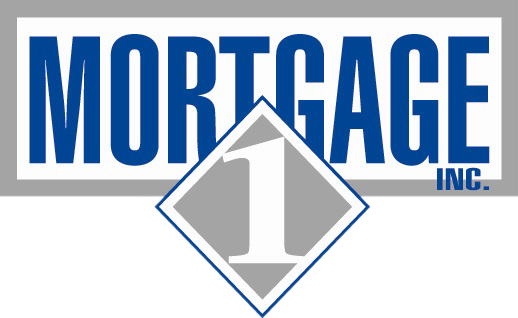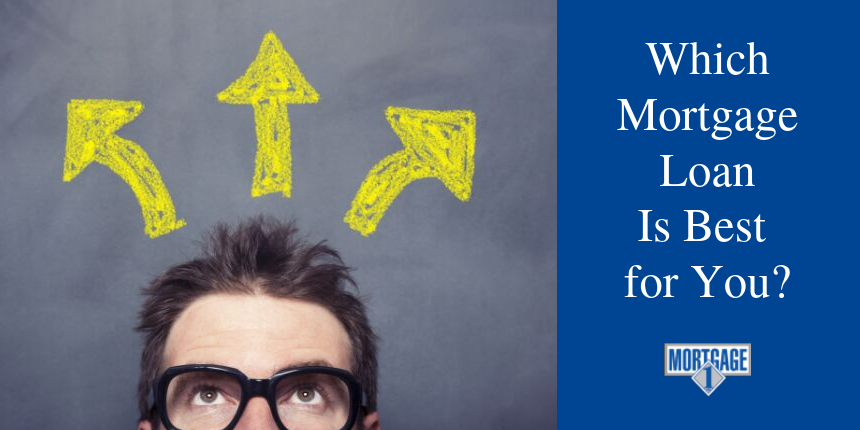
What Is Debt-to-Income Ratio and Why Is It Important?
August 8, 2019
Physician Mortgage Loans: What You Need to Know
August 26, 2019When it comes to getting a home loan, there are really three options for the typical US home buyer:
- Conventional
- FHA
- VA
What are the differences in these loan types, and which is right for you? We’ve got the answers.
Conventional, FHA and VA Loan Summary
Here’s a handy summary of the differences between these three loan types. Read further below for additional insights.
|
Conventional Loan
|
FHA Loan
|
VA Loan
|
|
|
Down payment minimum
|
3% of purchase price; at least 20% to avoid private mortgage insurance (PMI)
|
3.5% of purchase price
|
0%
|
|
Credit score requirement
|
620
|
580 with 3.5% down; 500 with 10% down
|
No minimum
|
|
Mortgage insurance
|
None if down payment is 20% or more of purchase price
|
1.75% of the loan amount upfront, plus a variable annual fee
|
Upfront VA funding fee of 1.25% to 3.3% of the loan amount
|
|
Suitable for
|
Borrowers with excellent or good credit
|
Borrowers with high debt-to-income ratio or low credit scores
|
Veterans, military service members and spouses
|
|
Interest Type
|
Fixed or variable
|
Fixed
|
Fixed
|
Conventional Loan
Conventional loans are the most popular mortgage loan in the US. Conventional loans make up nearly three quarters of all home loans in the country. At Mortgage 1, this percentage holds true, also, according to Mortgage 1 CEO Mark Workens.
What is a conventional loan?
A conventional loan is a mortgage that is not insured or guaranteed by the government. Instead, the loan is backed by private lenders. With a conventional loan, insurance, if there is any, is paid by the borrower.
Why do so many home buyers go with a conventional loan?
One reason is flexibility. Conventional loans can be obtained for a variety of lengths and for a wide range of terms. Provided you put down at least 20%, conventional loans don’t require any mortgage insurance. And conventional loans can be used for second homes or vacation properties.
Here’s a summary of conventional loan pros and cons and who they are best suited for.
Pros of conventional loans:
- Low interest rates
- Fast loan processing
- Variety of down payment options, starting as low as 3% of the home’s sale price
- Various term lengths, ranging from 10 to 30 years
- Reduced private mortgage insurance (PMI), if needed
Cons of conventional loans:
- Require good credit score
- Require 20% down payment to avoid insurance
- More stringent eligibility requirements
Conventional loans are good if:
- You have a good or excellent credit score and can qualify for a low interest rate.
- You’re purchasing a second home or a vacation home.
- You’re purchasing a property you plan to fix up and flip or rent.
- You will make a 20 percent down payment and won’t need PMI.
- You want a shorter loan term or flexible terms, (e.g., a variable-rate mortgage).
FHA Loan
An FHA loan is issued by a federally approved bank or financial institution that is insured by the Federal Housing Administration. The FHA is the largest mortgage insurer in the world. It has insured more than 47.5 million properties since 1934.
With an FHA loan, the FHA isn’t lending you the money. Instead, the FHA insures the loan, which means if you fail to make payments and the house is foreclosed, the FHA absorbs the cost.
Pros of FHA loans:
- Minimized credit qualifications
- Reduced down payment requirements
- Lower closing costs
Cons of FHA loans:
- 75 percent upfront mortgage insurance premium required at closing, regardless of down payment amount
- Monthly mortgage insurance payments for the life of the FHA loan if the down payment is less than 10 percent. It can be canceled after 11 years if the down payment is 10 percent or more.
- Limited to owner-occupied properties
- Loan limits are lower than those of conventional mortgages
FHA loans are good if:
- People whose house payments will be a big chunk of take-home pay.
- You have a lower credit score.
- You will be making a smaller down payment
- The purchase price meets FHA mortgage limits
VA Loan
A VA loan is a mortgage loan that’s issued by private lenders and backed by the U.S. Department of Veterans Affairs. It helps U.S. veterans, active duty service members, and widowed military spouses buy a home. To qualify for a VA loan, you must meet one of the following criteria:
- Be an active duty service member or an honorably discharged veteran who has 90 consecutive days of active service during wartime or 181 days of active service during peacetime.
- Have served more than six years in the National Guard or the Selected Reserve.
- Are the spouse of a service member who died in the line of duty.
Pros of VA loans:
- No down payment
- No minimum credit score requirement
- No limit to the amount you can borrow
- No PMI insurance requirements
- Don’t need to be a first-time home buyer
Cons of VA loans:
- Must be military member or veteran
- Required to pay a VA loan funding fee between 1.25% and 3.3% of the loan amount
- Can only be used for primary residences
VA loans are good if:
- You or your spouse are military service members or veterans
- You don’t have money for a down payment.
- Your credit score is fair or poor
- You plan to occupy the home
Which Loan is Right for You? Let Mortgage 1 Help
Trying to decide which type of loan is best for you? Let Mortgage 1 help. Give us a call at (866) 532-0550 or get started today with Mortgage in a SNAP.





